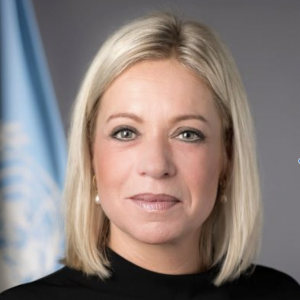Pervasive and systemic corruption is one of the biggest challenges facing Iraq. Its economic cost and negative impact on stability and prosperity are enormous. It undermines progress, deprives citizens of their rights, discourages international investment and robs the State of the resources needed to deliver to its people better schools, hospitals, roads, and countless other public services.
I said it many times before, most recently at the UN Security Council in October: corruption is a major cause of Iraqi dysfunctionality, and keeping the system ‘as is’ will eventually backfire.
Iraq’s most recent high-profile corruption case, the so-called “theft of the century”, will unfortunately not be the last, and we can only hope that it serves as a wakeup call. There is no denying it, systemic change will prove vital for the country’s future. This change, however, will not happen overnight. It will require intense work and perseverance, collective efforts, and the understanding that the time to act clean is now.
While the government has taken a number of encouraging steps, it is no secret that these efforts may be obstructed or undermined by those who stand to lose. But let me emphasize, they should be given no respite.
This year’s International Anti-Corruption Day (IACD) seeks to highlight the crucial link between anti-corruption and peace, security and development. Under the theme “Uniting the world against corruption”, it stresses that tackling this crime is the right and responsibility of everyone.
In this spirit and for the sake of future generations, let us all work together, in Iraq and elsewhere, whether as individual citizens or those holding public office, to fight for accountability, transparency and the rule of law. To build a system that serves the need of society instead of serving a closed community of collusion that has very little concern for the national interest. Extracting state resources for private and partisan interests must stop. And ensuring accountability across the spectrum will be essential.


